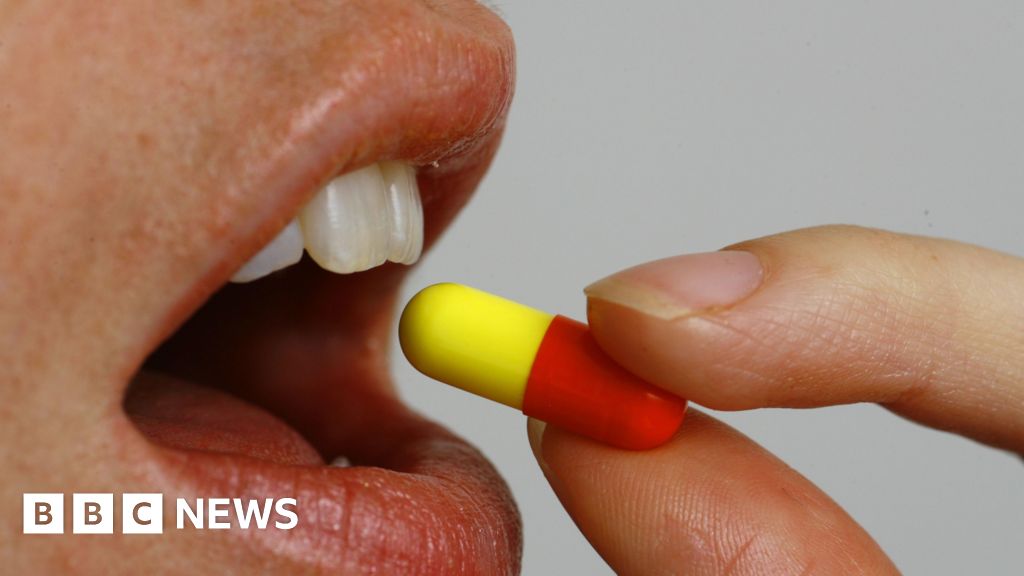A woman has issued a stark warning about using shared bathrooms after contracting a dangerous virus that left her with sepsis and took her almost a year to recover from.
JaMarriae Lawrence, who goes by Mars, was working overnight at a Walmart distribution center in Virginia last year when she was hit with a ‘sudden, excruciating’ pain in her stomach.
Mars, who lives in Newport News, recalled the pain being so severe she couldn’t even stand upright.
‘I wrapped up what I was doing, slouched over, and made my way to the front,’ the 20-year-old told DailyMail.com.
She immediately left work and went to the local hospital, where they ran blood work, CT scans, and collected urine.
‘They suspected ovarian cysts or an appendix rupture but ultimately said I was likely fighting a virus,’ she explained. ‘Since it didn’t seem life-threatening, they sent me home.’
However, Mars’ condition worsened, and she began throwing up every few hours. Concerned, she went to a different hospital and was told the same thing.
‘[They told me] “Your bloodwork shows you’re fighting something, but it’s not life-threatening,”‘ she recalled. ‘Again, I was sent home.’

JaMarriae Lawrence, who goes by Mars, was working overnight at a Walmart distribution center in Virginia last year when she was hit with a ‘sudden, excruciating’ pain in her stomach
However, that night, the content creator and singer began ‘vomiting and having diarrhea at the same time.’ Noticing how sick she was, her mom took her to another hospital.
‘They ran more tests and finally discovered I was septic,’ she shared. ‘I was hospitalized. They gave me fluids and ran stool and urine cultures.’
After running more in-depth tests, doctors found that she had C. difficile (C. diff) in her stool and Mycoplasma hominis in her urine, with Mars saying she contracted the virus from using a bathroom from someone who also suffered from the illness.
Clostridioides difficile (C. diff) is a type of bacteria that can cause inflammation of the colon, known as colitis, which can cause diarrhea and more serious intestinal conditions. Mycoplasma hominis causes pain or burning during urination, genital discharge, and pelvic pain or discomfort.
Mars was treated with antibiotics and discharged after a week – but that wasn’t the end of her medical nightmare.
‘I felt okay for a few months,’ she recalled. ‘Around the same time, I visited someone who had C. diff at the same time I did the previous year.’
‘I used her bathroom and was shocked to find there was no soap. A month later, my symptoms returned,’ Mars shared. ‘I told my GI doctor that I suspected I had C. diff again. He ordered a stool test, which confirmed it.’
Mars was put on an antibiotic called Dificid, which eventually cleared up her symptoms.

Mars was treated with antibiotics and discharged after a week – but that wasn’t the end of her medical nightmare

After running more tests, doctors discovered Mars was septic. ‘I was hospitalized. They gave me fluids and ran stool and urine cultures’ she shared

Mars, who lives in Newport News, recalled the pain being so severe she couldn’t even stand upright (stomach pictured during her ordeal)
‘This whole ordeal began in April 2024, and I am only now beginning to feel relief,’ she shared.
‘C. diff can be picked up anywhere. What I really want people to understand is this: we’ve become too comfortable with filth,’ she pointed out.
‘I see people skip handwashing all the time. People go out in public while sick. They don’t finish their antibiotics. And all of this leads to antibiotic-resistant superbugs,’ Mars continued.
‘In elementary school, our teachers made us wash our hands before lunch. But where is that standard now — in middle school, high school, college? I think we’ve forgotten basic hygiene. I think we’ve forgotten empathy,’ she declared.
‘Some say there’s always risk of going to public places, which there is, but C. diff isn’t a normal bacteria. It’s strong. Contagious. And deadly,’ Mars warned.
In the US, 500,000 infections cause 15,000 deaths each year, as per the Cleveland Clinic.
According to Dr. Steven Goldberg, Chief Medical Officer at HealthTrackRx, C. diff can be spread through toilets and bathrooms – especially in hospitals, nursing homes, or shared facilities.
‘C. diff is spread via spores that are shed in the stool of an infected person,’ he told DailyMail.com. ‘These spores can survive on surfaces like toilets, sinks, and medical equipment for weeks or months.
‘Transmission typically occurs when someone touches a contaminated surface and then their mouth, or through healthcare workers’ hands.’
Dr. Goldberg added that spores can spread to others if high-touch surfaces like toilets, handles, and sinks are contaminated and not thoroughly disinfected.
‘The proper handwashing with soap and water is critical, as alcohol-based sanitizers do not reliably kill C. diff spores,’ he urged.
‘[C. diff] most commonly leads to watery diarrhea, abdominal cramping, fever, and in severe cases, life-threatening complications,’ Dr. Goldberg said. ‘C. diff often occurs after antibiotic use, which disrupts normal gut bacteria and allows C. diff to overgrow.’


